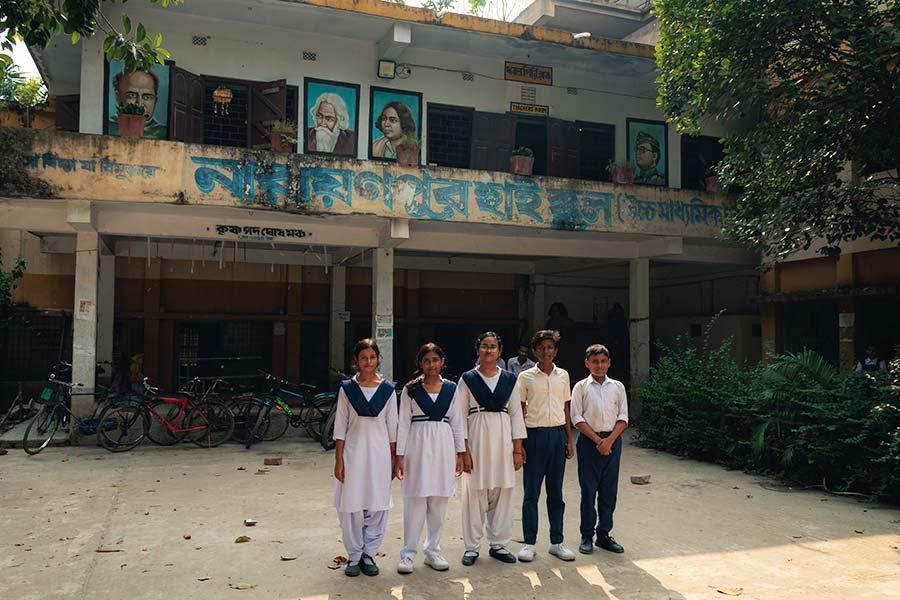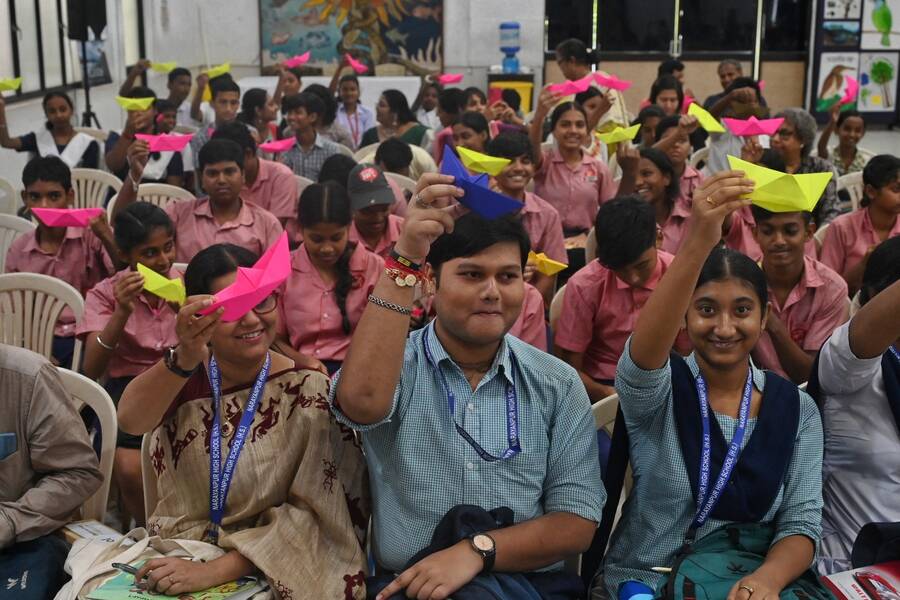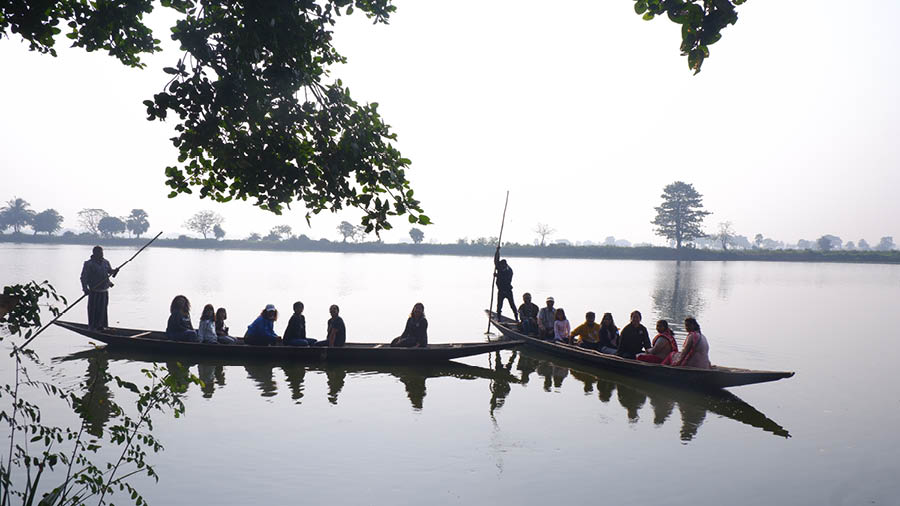Nestled within the lush greenery of East Kolkata Wetlands, Narayanpur High School has implemented several initiatives to align its operations with sustainable practices and environmental awareness among its students. The school has launched multiple schemes aimed at preserving the local ecology and fostering a sense of responsibility towards the environment. My Kolkata reports on its efforts.
According to headmaster Avijit Dasgupta, the school’s green journey started in 2019. He explained that despite living in the wetlands, students didn’t know about the importance of the region or how to preserve it. “Our initial focus was to make our school a plastic-free zone,” says Dasgupta. The institute started by incentivising students with prizes to clean their classrooms, and later, expanded the initiative by encouraging them to clean the campus. In the past five years, Narayanpur High School has reportedly cut down its plastic usage by half.
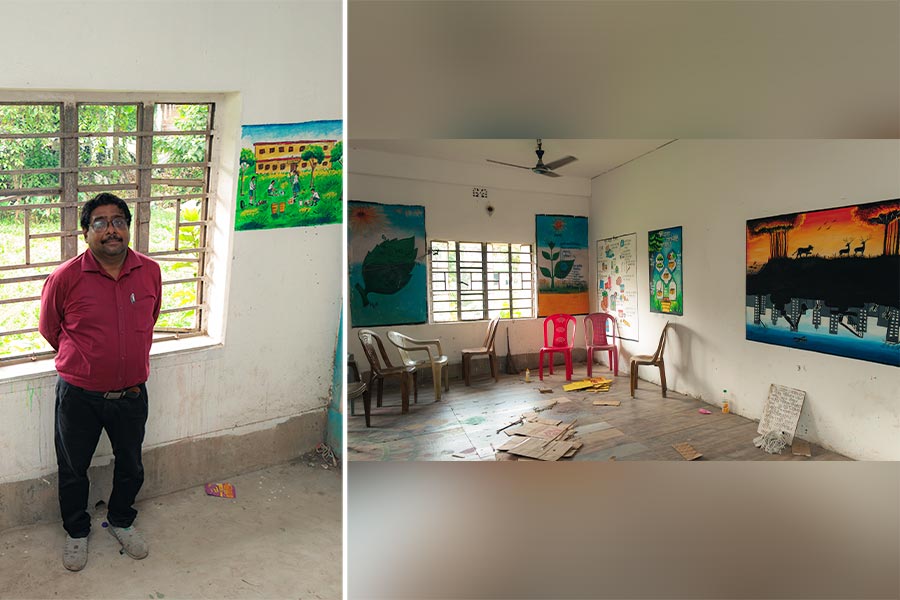
‘Disappearing Dialogues has mentored our students to adorn the entire school’s walls with art that provide major learnings about the wetland’s biodiversity and the need to preserve it,’ says headmaster Avijit Dasgupta (left)
This focus on environmental education has culminated into a school culture, where students were encouraged to engage with their surroundings beyond the classroom. For instance, the students held rallies in the area, informing the neighbourhood about the dangers of plastic to their precious wetlands. “Textbook learning is one-dimensional. We decided to prioritise experiential learning,” Dasgupta says.
Partnerships with Wipro and Disappearing Dialogues furthered this cause, as Narayanpur High School joined the Kids for Tigers and Namami Gange programmes. “While the former involved us taking the children to the Sunderbans and understanding its flora and fauna, the latter has them creating awareness in their neighbourhood to clean the Ganga. They are also planning to engage with people who live along the ghats, and educate them on the impact of river pollution,” adds Dasgupta.
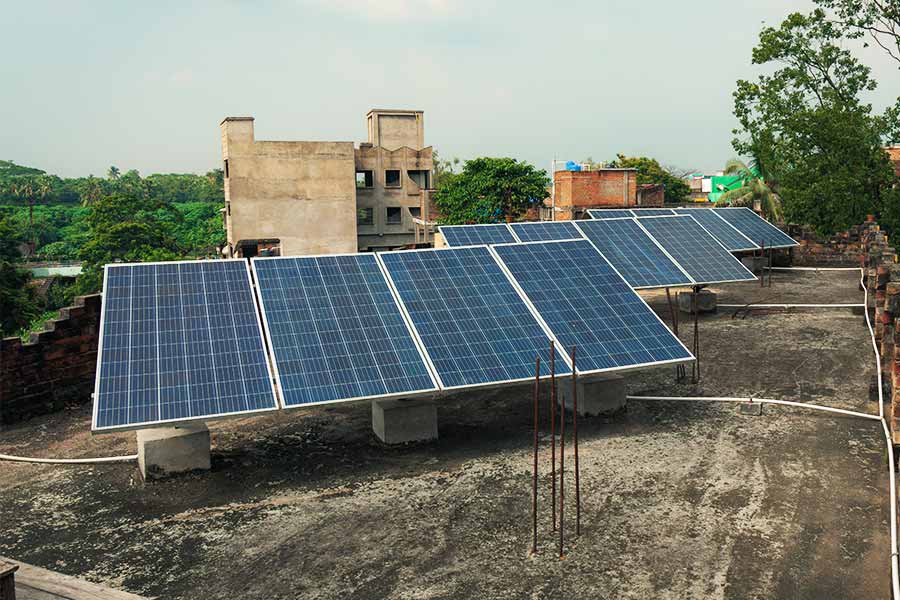
The roof of the school has 32 solar panels, which not only generate enough electricity to power the entire campus, but also a significant surplus for neighbouring buildings
In addition to environmental projects, the school has a class called, ‘Work Education’, where students are provided vocational training and made employable. A huge chunk of this involves repurposing waste into useful items like vases made from plastic bottles, dustbins out of old cardboard, and jewellery from beads. They are also being taught pottery, with plans to exhibit the students’ ceramic works at a fair in December.
Throughout the school, classrooms and walls display visuals related to climate change, water conservation and biodiversity, made by students. Students have even started segregating waste into three dustbins. “The effect can’t be quantified but it is still very visible. I’ve had guardians tell me about how the children now care about the plastic usage in their homes, and want to plant more trees,” says Dasgupta.
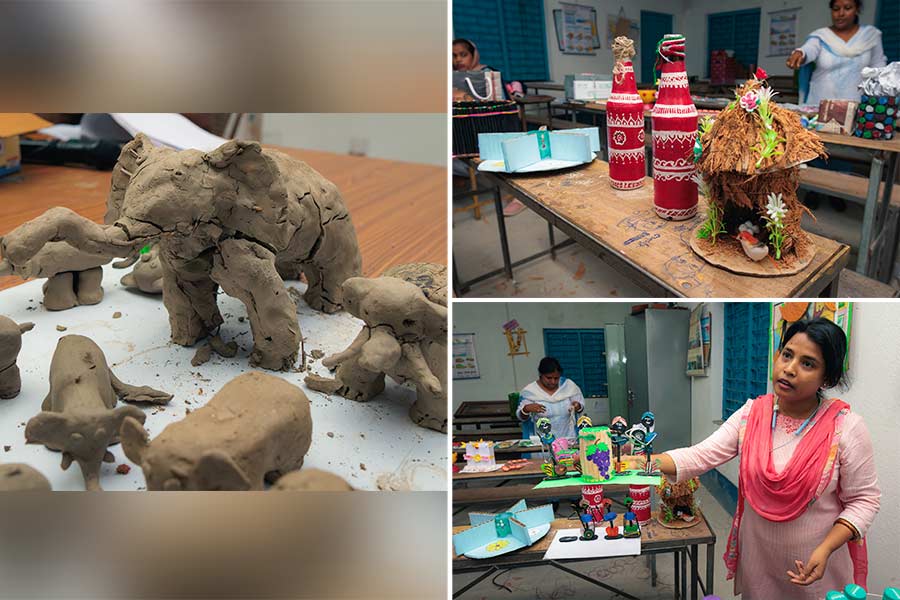
The school’s vocational training programme provides the students with the competence to create something useful out of waste products like plastic bottles and ice cream sticks
Recently, Narayanpur High School won a national award at the Wipro earthian Sustainability Education Programme held at Modern High School for Girls. Piyali Mazumder, the biological science teacher, spearheaded the project. “We documented the extensive flora and fauna on our campus, and how the village of Narayanpur has undergone significant ecological changes over the past 60 years. Our hypothesis was that if the East Kolkata Wetlands aren’t preserved, Kolkata will soon drown in its own waste,” she adds.
Beyond environmental concerns, Narayanpur High School is also addressing social issues within the local community. Drug abuse, child trafficking and child marriage remain challenges in the area. To educate the students about these issues, the school has collaborated with NGO Bitan, which hosts interactive sessions and creates spaces for students to open up. According to Dasgupta, “There was a shop selling marijuana right outside the school. After much resistance, we got it shut.”
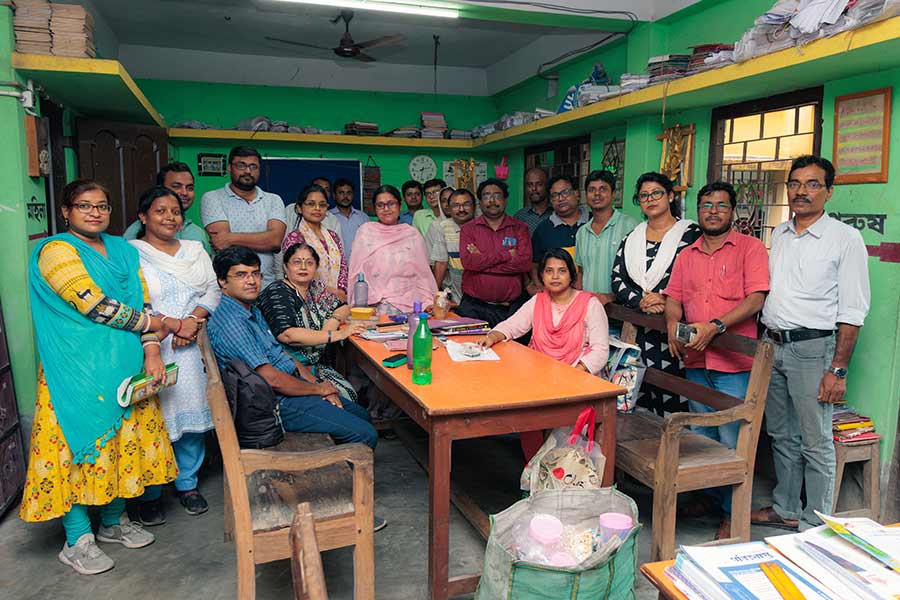
The extensive teacher’s body mentors the child cabinets
To manage its many projects, Narayanpur High School has implemented a ‘child cabinet’ system. Here, 10-member student teams are created to oversee a particular issue, with one teacher assigned to monitor each cabinet. “Every child is involved with at least one environmental or social cause. When these students actively participate in a cause, they also spread the learnings to their friends. This creates a far-reaching chain reaction that goes beyond textbooks,” signs off Dasgupta.
